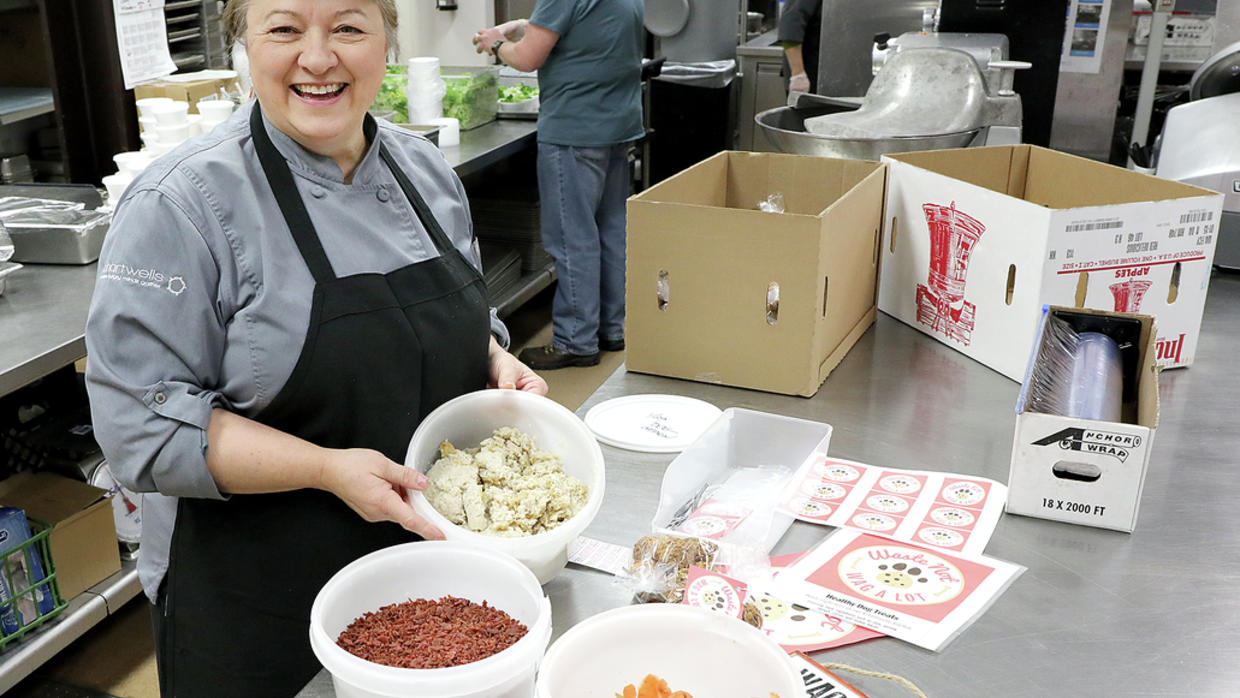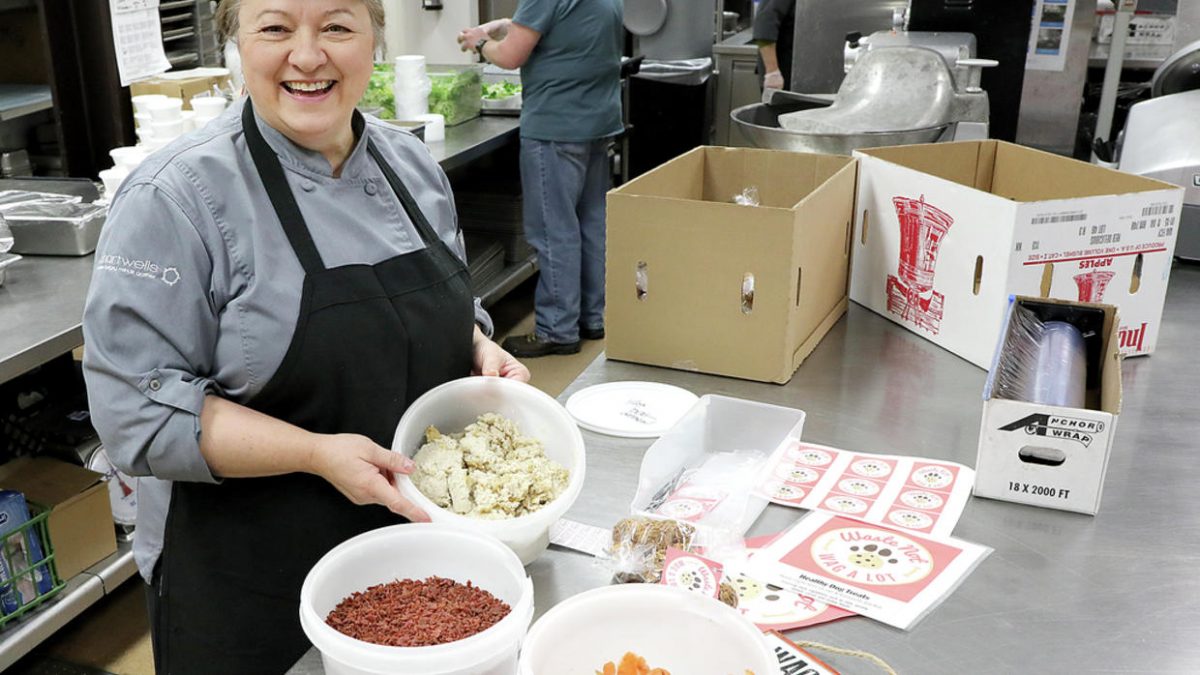
“Every dog I’ve ever seen has loved it. It’s like table scraps,” said Sheila Keup, shelter director for the Humane Society of Douglas County.
Many of the treats Thompson made in November and December were donated to the Humane Society. They were sold at craft fairs and at the shelter itself for $4 a bag, with proceeds going to the nonprofit. The treats can also be found at the Yellowjacket Union dining hall retail store in limited quantities.
The initiative has gotten the thumbs up from students.
“As a club, we are very excited about this creative way to avoid food waste,” said Katie Mayer, co-president of the Sustainability Club at UWS. “From what I’ve heard, Sandy is always looking for innovative ways to save good food from being wasted.”
Thompson takes care of the numbers and waste program for Chartwells, the university’s food service provider.
“This is a national thing, and they’re very serious about managing food waste and trying to educate people about not throwing away so much food,” said Thompson, an Ely native.
She held “front of the house” education for students to encourage them to take only what they can eat. Their waste was measured one day in early December and repeated a week later.
“They did reduce it the following week, so I think it’s just awareness,” Thompson said.
The sous chef also began seeking a “back of the house” waste solution. Looking through the Chartwells corporate database, she found the Waste Not Wags a Lot program, which featured three dog treat recipes.
“I thought, oh, man, that’s good,” Thompson said. “People could connect with dogs.”
The recipes available used a lot of new food, however.
“You want to try to minimize the amount of new ingredients because then it defeats the purpose, plus, it’s costing you money then,” she said.
Thompson’s career has included food-focused journalism and editorial work, cafe ownership and teaching cooking classes.
“Back in the day I did recipe development,” Thompson said, so she penned her own recipe to make dog treats out of dining hall leftovers.
The ingredient list is short.
“Carrots, turkey bacon, sweet potato, oats — those are kind of the core ingredients that we always have leftovers of,” Thompson said.
Eggs and flour, used to bind the treats together, are the only new ingredients.
“I don’t add any seasonings; I don’t add any sugar. What’s not to like?” Thompson said.
The leftovers aren’t off student plates. The only thing that can be done with that food is to throw it away.
What goes into the dog treats is good food that would otherwise be hitting the trash can.
“We are not generating enough leftovers to donate to a food shelf, because we try really hard to hit the numbers, you know, to make just enough. And we do a pretty good job of that,” Thompson said. “This is just little bits of food. You know — a quart of this, a quart of that. But with each batch I keep 16 quarts of leftovers out of the trash can. It’s the proverbial win-win situation.”
“It’s a genius idea,” Keup said. “Why throw it away when we could put it to use?”
The dog treats are one aspect of the Waste Not management program, a company-wide initiative. Chartwells uses many sustainable practices.
“We don’t use plasticware as a matter of course and we stopped using straws,” Thompson said.
They are available by request only.
The food service company has engaged students in the process.
“The Sustainability Club has been working with Chartwells on several sustainability initiatives recently, and they have been nothing but cooperative and supportive,” Mayer said.
When UWS released an online story about the dog treat project Saturday, Feb. 23, it went viral. By Tuesday, it had 30,000 views.
“It’s not about me, it’s about dogs,” Thompson said. “That’s why this has gone crazy; it’s because it’s about dogs.”
Keup said she hopes it prompts others to consider ways to reduce waste.
“What a great thing to do,” she said. “Everybody else who reads this story, I hope they think about that instead of throwing it away.”
Thompson said she plans to keep turning leftovers into dog treats and donating a portion to the Humane Society. Call ahead or visit the Humane Society Facebook page to check if treats are available.

